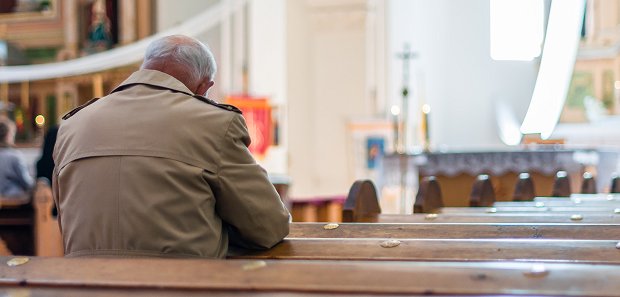Religious freedom in Australia - Part I of III

Robust national survey data paints a revealing picture of the people behind the current push to legislate “religious freedoms”, and the politicians who are helping them. But electorate winds have recently changed.
In political reaction to Australia’s legalisation of marriage equality in 2017, the federal government is about to introduce its “religious freedoms” bill into parliament. But the marriage equality reform explains only a small part of the picture, as robust evidence reveals.
Impeccable data from two periodic Australian National University studies, the Australian Election Study (latest: 2016) and the Australian Values Study (latest: 2018), allows us to peek into the hearts and minds of those urging special protections for religion. It’s quite revealing.
The studies help us understand Australians through distinct psychographic segments. A key framework is the Australian Social Identity 6-Factor (ASI6). It profiles Australians by religion versus secularism, and as socially progressive, moderate or conservative, yielding six segments from secular progressive to religious conservative.
Religious conservatives comprise a small minority (8%) of Australia’s adult population, religious moderates 16%, and religious progressives 22%. Put another way, most religious Australians are social moderates and progressives (84%).
Unsurprisingly, religious conservatives are most likely to believe in god (99% versus 86% religious moderates and 79% religious progressives respectively) and to see religion as personally important (99% versus 62% and 35%). They’re also far more likely to believe in life after death, and in heaven and hell.
Some 7% of Catholics are religious conservatives, as are 4% of Anglicans and Uniting/Methodists, 24% of minor Christian denominations, and 16% of non-Christian religions. While religious conservatives span the age spectrum, they’re strongly overrepresented amongst 75+ year olds who are largely Anglican, and in the 36-45yo group who are mostly minor Christian denominations.
Religious conservatives are the least likely to be working full time and most likely to be keeping house or retired. They’re fairly evenly split between male and female.
But before we move on, a quick aside. Another framework, the Australian Religious Identity 6-Factor (ARI6), segments Australians by religious affiliation and practice (not social attitudes). Analysis of these segments over time reveals that Australia’s slow, long-term trend away from religion has recently become a tsunami.
Over many years to 2016, the proportion of ARI6 religion Rejecters and Socialisers (combined: “no religious affiliation”) amongst Australian adults had been slowly growing from around 23% to 33%. However, in just two years to 2018 it had jumped to 54%. Let that sink in. Now, more than half of adult Australians report no religion, mirroring the UK’s most recent figure of 52%.
A likely major factor is public dismay at the findings of the royal commission into institutional responses to child sexual abuse, whose final report was handed down in late 2017. Covered widely in the media, it reported that much of the abuse occurred in religious institutions, particularly the Catholic church.
The exodus to no religion has occurred primarily from two other ARI6 segments, Notionals and Occasionals — those who had been affiliated with a religious denomination but who never, or only sporadically, attended religious services.
This abandonment means that religious conservatives are now more starkly ‘on their own’. They’re now far less able to rely on the assumption that a “silent majority” support their views or accept them as authorities.

At just 8% of adult Australians, religious conservatives are the only group with a majority opposed to voluntary assisted dying, more freely available abortion, private marijuana use and marriage equality
It’s possible that religious conservatives see getting “religious freedom” protections over the legislative line as urgent before the media and public become fully aware of this abrupt rise in secularism.
So what’s in the hearts and minds of religious conservatives? Their views on a range of social matters stand out starkly from others — even from secular conservatives.
For example, on legalised abortion, religious conservatives are the only ASI6 segment lacking majority support for more freely available services (9% support versus 56%–91% support across other segments). Indeed, religious conservative opposition to abortion in all circumstances is unique (26% versus 0%–3% all others).
On voluntary assisted dying, religious conservatives are the only segment with a majority opposition (52% versus 2%–9% all others). The same is true for the legalisation of marijuana for personal use (60% opposed versus 11%–42% all others).
And on marriage equality, religious conservatives inhabit a different universe: 85% opposed versus just 7%–39% all other segments. They’re also the most likely to disapprove of homosexuals and people living with HIV/AIDS as neighbours. Further, they’re also the most likely by far to believe that homosexuals make bad parents, despite professional research establishing that they’re equally as good as heterosexual parents.
Thus, attitudes toward law reform on contemporary societal matters including abortion, voluntary assisted dying, personal marijuana use, and marriage equality all find uniquely deep opposition in only one of the six social (ASI6) identities, religious conservatives, who comprise just 8% of adult Australians.
But that’s not all. In Part II of this portrait, we’ll explore religious conservatives’ views about life and family, and what they mean for all Australians. We’ll also examine their political alignment.
-----
The analyses conducted on the ANU data are ResearchSquirrel's and not ANU's.
Got a topic you'd like us to consider? Ask here...






